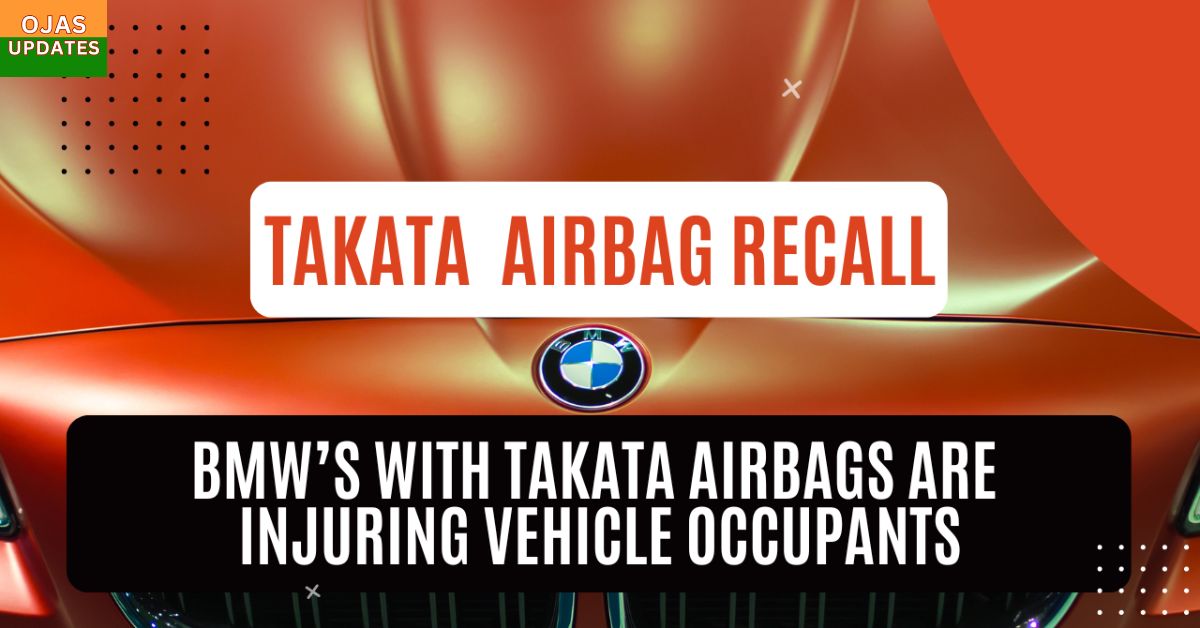BMW has issued a critical safety recall affecting over 5,000 X5 SUVs due to potentially deadly Takata airbag inflators. These airbags, known for their explosive defects, have already caused dozens of fatalities worldwide. The latest alert underscores the lingering danger of Takata’s legacy and BMW’s renewed commitment to driver safety.
💥 The Takata Crisis: A Deadly Legacy
Takata airbags have been at the center of one of the largest and most dangerous automotive recalls in history. The issue stems from the use of ammonium nitrate as a propellant in the inflators. Over time, especially under conditions of high humidity and temperature fluctuations, the chemical can degrade. This degradation can cause the inflator to explode with excessive force during deployment, sending metal shrapnel into the cabin.
Globally, over 67 million Takata airbags have been recalled, and at least 28 deaths in the U.S. have been linked to the defect. Despite years of recalls and replacements, some vehicles—especially older models with aftermarket modifications—have slipped through the cracks.
🚨 BMW’s Latest Recall: What You Need to Know
BMW’s new recall affects 5,361 units of the X5 SUV, specifically those from model years 2000 to 2001. These vehicles originally came with standard steering wheels but were later retrofitted with sportier units that may contain the Takata PSDI-4 airbag inflator.
According to the National Highway Traffic Safety Administration (NHTSA), these inflators are prone to “extremely aggressive combustion”, which can result in rupture and shrapnel injuries during airbag deployment. BMW’s internal review of previous Takata-related campaigns led to the discovery of this overlooked population of vehicles.
🔍 Who Is at Risk?
The recall specifically targets early X5 models that had their steering wheels replaced before April 2000. These retrofits may have introduced the dangerous inflators into vehicles that were not originally equipped with them. BMW is urging owners to check their vehicle status immediately and avoid driving affected cars until repairs are completed.
BMW Australia has also launched a dedicated recall portal where owners can input their vehicle details to see if they’re affected.
🛠️ BMW’s Response and Repair Strategy
BMW is preparing a technical campaign to replace the faulty airbag modules. The company has pledged to notify affected owners and provide free replacements. Dealers will inspect the steering wheels and inflators, and if a Takata unit is found, it will be removed and replaced with a safe alternative.
This proactive approach reflects BMW’s commitment to safety and transparency, even as the industry continues to grapple with the long tail of the Takata crisis.
📉 Why This Matters Now
While the bulk of Takata-related recalls occurred years ago, this latest alert highlights a critical issue: retrofitted parts and aftermarket modifications can reintroduce risks into vehicles that were previously deemed safe. It also raises questions about how automakers track and manage changes made outside of factory specifications.
For consumers, it’s a stark reminder to stay informed about recalls and to be cautious when modifying vehicles—especially when it involves safety-critical components like airbags.
🧭 What Should Owners Do?
If you own a BMW X5 from the early 2000s, here’s what you should do:
- Check your VIN on BMW’s recall website or the NHTSA portal.
- Avoid driving the vehicle if it’s listed in the recall until repairs are made.
- Contact your local BMW dealer to schedule an inspection and replacement.
- Stay updated on any further recalls or safety notices.
🏁 Final Thoughts: Safety First
BMW’s alarm over Takata airbags is more than just another recall—it’s a wake-up call for the industry and consumers alike. Even years after the initial crisis, the risks remain real, especially in vehicles with aftermarket parts. BMW’s swift action is commendable, but it also underscores the importance of vigilance, transparency, and proactive safety measures.
As automakers continue to innovate, they must also ensure that past mistakes don’t resurface. For drivers, staying informed and responsive to recalls is not just a responsibility—it’s a matter of life and death.

